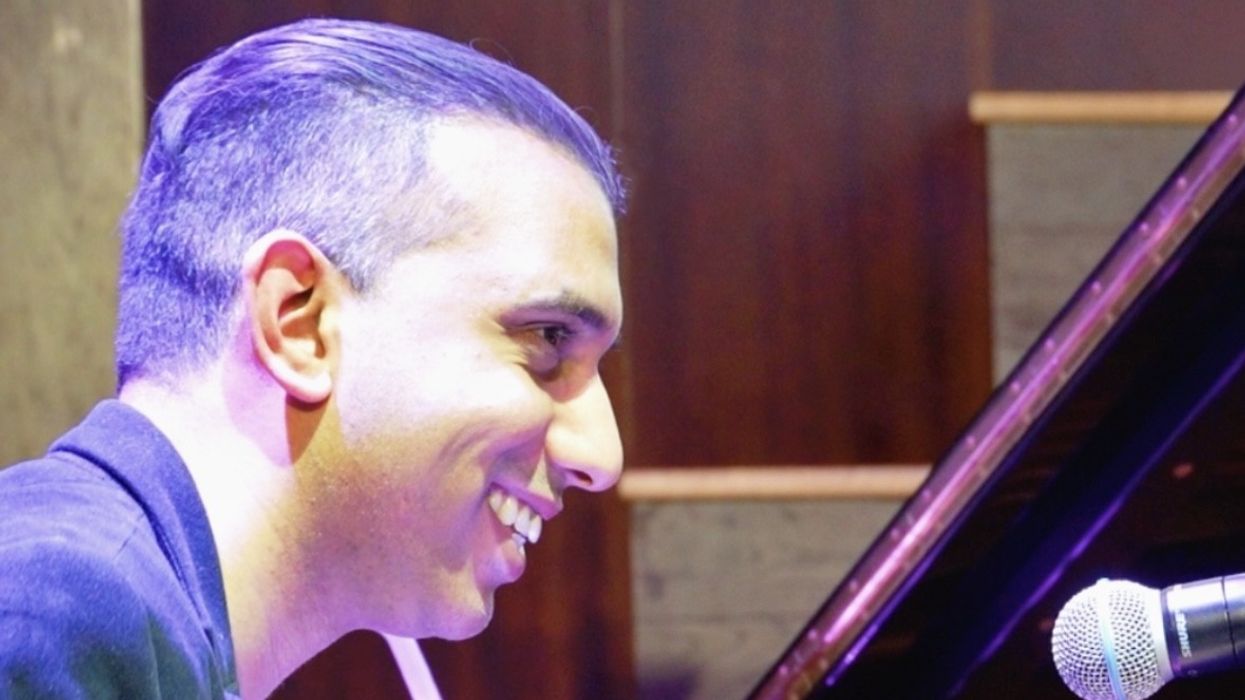ALTHOUGH he is an accomplished composer, British pianist Rekesh Chauhan BEM is at his very best in front of a live audience.
The multi-award-winning music maestro joins top tabla player Kousic Sen for a concert at this year’s Liverpool International Jazz Festival, taking place at The Capstone Theatre in Liverpool on February 22. The versatile duo will explore the dynamic intersection of Indian classical music and jazz in the culturally rich Beyond Roots show.
Eastern Eye caught up with the master pianist to discuss his love for live performance and forthcoming show.
How much does live performance mean to you personally?
The spontaneity and energy of being in the moment make each concert unique. I find immense joy in connecting with the audience, and it’s incredibly rewarding when people share how the music has had a positive impact on them. Knowing that a performance can touch someone’s life makes every moment on stage even more meaningful.
What has been your most memorable concert?
There have been quite a few – from performing with Shankar Mahadevan to playing at the Royal Albert Hall and even recording a live concert at Symphony Hall. All of these moments have been incredibly special.
Tell us about your Liverpool International Jazz Festival show in February.
This concert will mark the beginning of performances celebrating the 10-year anniversary of my debut album Beyond Roots – an album of classical ragas performed on the piano, produced by the brilliant arts organisation Milap. The album was recorded in Liverpool, so it is fitting that the celebrations begin there. I will be joined by tabla maestro Kousic Sen ji, who also performed on the album. Over the years, I have collaborated with larger ensembles to create a bigger sound for audiences, so I’m delighted to return to the pure form of classical ragas on the piano for this festival.
How do you feel being on stage in front of a live audience?
Most often, I am introducing a style of music to an audience that may be hearing it for the first time. So, I feel a responsibility to strike the right balance – staying true to tradition while also introducing my vision for the future of the music. My TEDx talk, The Future of Music (available on YouTube), explores this idea – music is constantly evolving, and it’s always exciting to discover new ways to communicate ideas.
How highly do you rate your fellow musician, Kousic Sen, for this show?
Kousic Sen ji is one of the most brilliant tabla players out there. He comes from a rich musical heritage and is a true virtuoso of his art form. We have been performing together for many years, and I’m fortunate to have him as a mentor.
Do you ever get nervous before an important live performance?
Absolutely. There have certainly been some nerve-racking moments – performing alongside legends like Javed Akhtar or knowing that Pandit Hariprasad Chaurasia is in the audience!
What are your plans for 2025?
It’s been a packed few years, and I’m glad to be back in the studio working on new music. The productions I scored during the pandemic explored the connection between mental health and music, and they really resonated with audiences. Music can have a profound positive impact, so I am determined to continue my work in this space. Keep an eye on my Instagram (@rekeshchauhan) for updates.
What inspires you as a live performer?
I am inspired by the audience – an artist draws energy from the audience, which in turn inspires the music. That exchange is what creates the magic.
You are a versatile artist, but which genre do you prefer?
I have enjoyed performing across different genres, but my heart belongs to classical music.
If you could master something new in music, what would it be?
I would love to compose for film, creating emotive scores that bring stories to life. Having worked on music for theatre productions, writing for film feels like a natural progression – blending my passion for storytelling with the power of orchestral music.
Why should we all come to your upcoming concert in February?
I will be offering a taste of India through the lens of Britain, taking the audience on a journey through folk, pop, and ragas – with a touch of nostalgia along the way. This will be a special moment to experience the music of ancient India in a city that gave the world The Beatles – a full-circle moment!
Milap and LIJF 2025 presents Beyond Roots, The Capstone Theatre, Liverpool Hope University, Creative Campus, 17 Shaw Street, Liverpool L6 1HP on February 22, 1pm. capstone.hope.ac.uk




